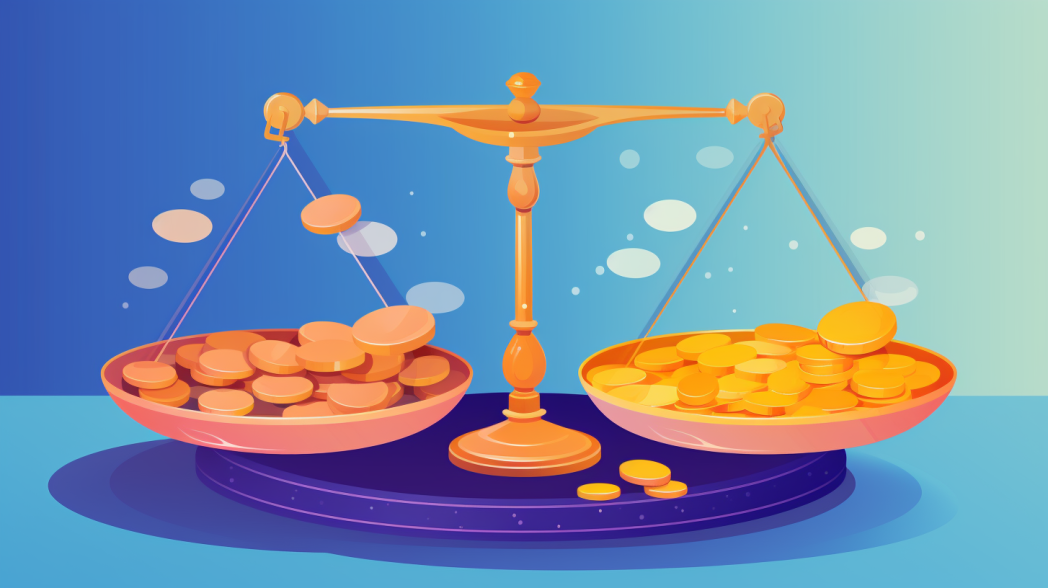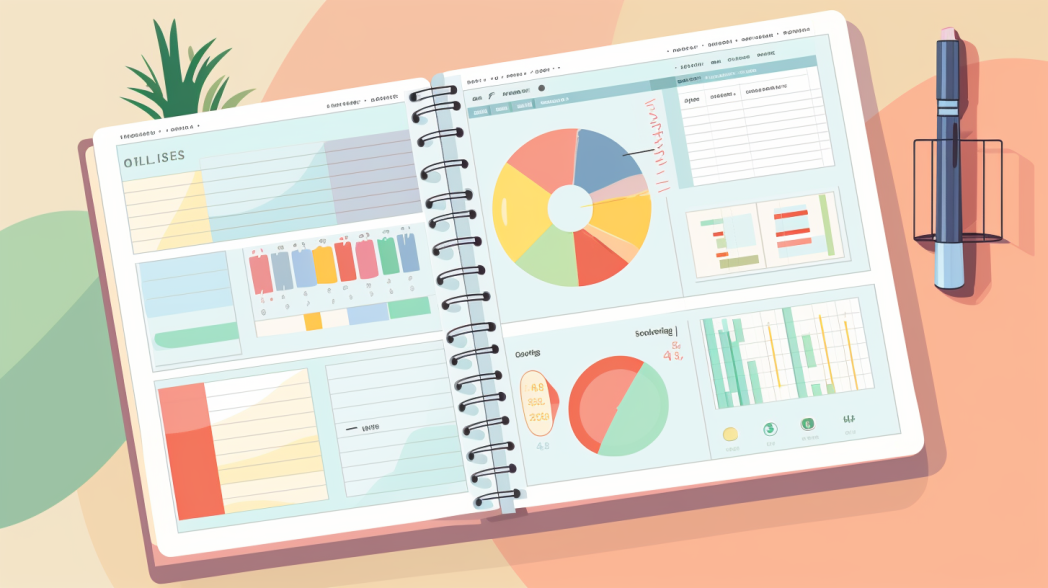Personal Budget Vs Business Budget

Ever feel like you’re trying to squeeze a dollar from a dime in your personal life or while managing a small business? It’s not just you — this dance of balancing income and expenses is something we all tango with.
After digging deep into the data, this blog post will share key insights into mastering the art of effective budgeting for individuals and businesses alike. So, come on board! This enlightening journey towards financial tranquility welcomes you wholeheartedly!
Key Takeaways
- A personal budget is a plan for our money. It lets us see how much we make and how much we spend. This tool helps us save for big things like homes or trips.
- Businesses use budgets too. Their budgets have more parts and need many people’s input. The goal is to keep the company making money and avoid financial trouble.
- Making both types of budget needs planning, checking often, and changing when needed. Without these steps, people can overspend or not reach their savings goals.
- Budgets bring good things like balance in spending and saving, plans for future growth, and less worry over cash or debt problems. So take control today with your own smart budget!
Understanding Personal and Business Budgets

As we kick off this journey, let’s disentangle the terms personal budget and business budget. A personal budget represents your master plan for managing income and expenses within a set timeframe.
On the flipside, a business budget mirrors similar aspects but delves deeper into revenue projection, fixed and variable cost allocation, debt service calculations and other sector-specific financial elements.
Whether you’re an individual striving to navigate personal finances or an entrepreneur plotting paths for monetary success in your venture, understanding both types of budgets is indispensable.
What is a Personal Budget?
A personal budget maps out your money. It tells you how much cash comes in and how much goes out. It’s like a road plan for every dollar you earn. People of all income levels use it.
With this tool, people can see future costs ahead of time. They place their funds to take care of both needs and wants. Preparing one helps save cash for big things like a home or vacation!
What is a Business Budget?
A business budget is a plan for how to spend money. It says what the income will be and where it will go. Just like with personal funds, a company needs to know its income and costs too.
A business budget also looks at profit or savings over time.
This kind of spending plan helps keep track of cash flow. It guides in making smart choices about operations, hiring, marketing and growth plans. Fixed expenses such as rent, utilities or loan payments are part of it.
Other costs may change each month, like office supplies or sales department expenses.
Without this planning tool, a firm risks running into financial trouble.
Similarities Between Personal and Business Budgeting

Whether you’re working on a personal or business budget, planning is key. Both types require careful evaluation of income and expenses to ensure financial stability. Like a map guiding travelers, a good budget leads individuals or businesses towards their financial goals.
Regular reassessment is another common feature, with both personal and business budgets often needing adjustment over time due to changes in income, expenses or objectives. Finally, creating either type of budget helps reduce stress by providing an accurate picture of current financial status and better control over spending patterns.
Importance of planning
Planning is the heart of any budget. It sets clear goals for what you want to do with your money. In a personal budget, it keeps track of all income and costs. It lets people make wise choices on how to spend their bucks.
For business budgets, planning helps businesses see how much they can allocate without losing profit. Without good planning, both individuals and businesses can face financial problems in the future.
Necessity of adjusting over time
Changes happen every day. They can hit our money plans hard. I found out that my cash plan needed changes over time. Costs and incomes change, the goals get bigger or shift, and sudden events occur.
All these factors made me adjust my personal budgeting strategy often. For businesses too, adjustments are a big part of the financial plan. A company’s income may go up or down in different seasons of the year due to fluctuations or one-time events like sales days or new product launches.
The costs can also rise when buying bulk office supplies or paying more tax for increased profit. Good business leaders keep a close eye on these changes and make regular updates to their business budgeting course to avoid going off-track from their goal of keeping the business profitable.
Differences Between Personal and Business Budgeting

Firstly, personal budgets generally involve fewer stakeholders and less complexity compared to business budgets. Secondly, while a personal budget often centers around fixed expenses like rent or mortgage payments, groceries and utility bills, a business budget features variable costs such as office supplies, sales department expenses, and administrative costs.
Finally, whereas revenue in a personal budget is relatively predictable – typically coming from salary or wages – the revenue of small to mid-sized businesses can fluctuate greatly due to one-time events or market conditions.
Complexity and stakeholder involvement
Making a business budget is harder than a personal one. It has more pieces and people are involved. People in the company need to have a say too. They help shape the plan. All parts of a company add input, like sales or admin teams.
This rolls up into one big master budget for the whole business.
Revenue and expense considerations
In business budgeting, we think about income and costs a lot. This is different from personal finance management. Businesses often deal with changes in income or expenses due to factors like market trends or one-time events.
Things such as debt service, extra taxes, fixed and variable costs come into play too. The goal here is to ensure the business makes money by planning ahead for these changes. It’s key to look at sales trends, cost trends and how the wider economy might affect your numbers in the future.
How to Create a Personal Budget

Starting a personal budget involves assessing your income and expenses. You will have to consider all sources of income after taxes. Then look at your expenses – both fixed and variable, such as rent or mortgage payments, groceries, utilities etc. The next step is setting financial goals – perhaps you want to reduce debt or save for a vacation.
Once these are established, it’s crucial to track your spending and adjust your budget accordingly over time, which can be done manually via Excel spreadsheets or more conveniently through various apps designed specifically for budgeting.
Don’t forget this process isn’t set in stone: revisit and tweak as necessary!
Assessing your income and expenses
First, you need to look at how much money you make. This is your income. It can come from a job, a side hustle or other places. After that, figure out where your money goes each month.
These are expenses. It could be rent or mortgage payments, food costs, bills and more.
Next comes decision time. Look for areas where you can cut back if needed. For example, maybe swap take-out dinners for home-cooked meals sometimes to save some bucks! Making these small changes can help boost your savings over time.
Setting financial goals
To set financial goals is a key step for a personal budget. First, list what you are saving for – it can be anything like a new car or house, vacation trips or even your child’s education.
Then put a dollar amount and time frame to each goal. Divide the total dollar amount by the number of months till your target date for each goal. The result is how much you need to save every month to reach that goal on time.
Tick off completed goals as they roll by and keep moving forward with new ones when needed!
Tracking and adjusting your budget
It’s key to keep an eye on your budget. I look at how much money is coming in and going out. When it changes, I change my budget too. This helps me keep up with the ups and downs of life.
This makes sure I can still meet my financial goals even when things are not as planned. It’s also smart to check on your plan often, maybe every month or so, just to be safe.
How to Create a Business Budget

First, start by separating your personal and business accounts to avoid any financial confusion. Next, estimate your future revenue and expenses accurately for smooth operations without unnecessary hitches.
Also remember to regularly review and adjust the budget as fluctuations are part of a business’s journey.
Separating personal and business accounts
Having separate accounts for your personal and business use is smart. It makes it easy to track your money. You can see how much you are making in your business. This helps when you need to pay taxes or get a loan.
Mixing personal and business funds can cause problems. If everything is together, you may spend more than you should on either side. By keeping them apart, it’s easier to stick with both of your budgets.
Estimating revenue and expenses
Making a good guess of money coming in and going out is key. Business budgets need to check the cash flow. For income, look at past sales as a guide. Also, think about how you plan to grow your business.
For costs, list all known expenses such as rent or loan payments. Then think of any up and coming ones like buying new gear or hiring more staff. Be sure to include one-time events and changes in the market too! This helps keep your business on track for success.
Reviewing and adjusting the budget regularly
It is crucial to check your budget often. This lets you see if things are going as planned. If not, make changes right away. Both personal and business budgets need this regular fine-tuning.
For businesses, it helps stay on top of shifts in income or expenses that may happen unexpectedly. Profits can grow with careful planning for the future and quick reactions to any change from the plan.
What Are the Best Practices for Reviewing and Managing a Personal Budget at Year-End?
When it comes to budget review best practices, managing a personal budget at year-end requires careful consideration. Firstly, analyze all income sources and expenses throughout the year to identify any trends or areas for improvement. Set realistic goals for the upcoming year and create a detailed budget that aligns with your financial objectives. Regularly monitor your progress, make necessary adjustments, and track your expenses to stay on top of your finances.
The Impact of Good Budgeting

Good budgeting, be it personal or business, paves the way for financial stability, promotes thoughtful future planning and significantly reduces financial stress. Eager to learn how you can achieve these benefits? Dive in further with us!
Financial stability
A good budget brings money balance. It’s like a ship rudder, steering us to safe waters. With it, we keep our spending in check and save more.
Budgets make future dreams real. We meet big goals without debt fears by saving bit by bit every month. It helps us feel cool and calm about money things.
Future planning
Making plans for the future is a key part of good budgeting. It helps you use your money in smart ways. With personal budgets, future planning means saving up for big goals like buying a house or going on holiday.
For businesses, it may mean making sure there’s enough money to grow and expand. Either way, having a plan makes it easier to reach these goals over time.
Reduction of financial stress
Having a good budget lessens your worry about money. It helps keep track of how much you earn and where that money goes. This gives you control over your spending and saving habits.
When unexpected costs show up, a well-planned budget comes to the rescue! With it, you can face any twist without fear or mess in your finances. You feel more calm knowing that your bills won’t pile up uncontrollably.
Better yet, that dream vacation or shiny new item is within reach! So, always have a budget in place for peace of mind and happy living.
Conclusion
Budgeting matters a lot, both in our life and business. You can keep money issues away with a good budget. Don’t let cash plan itself! Be wise and create your own personal or business budget today.
Take control of your money now for a better tomorrow.
FAQs
1. What is the main difference between a personal budget and a business budget?
A personal budget includes things like your monthly mortgage, grocery expenses and vacation costs, while a business budget covers areas like revenue forecast, fixed and variable expenses, taxes, project profitability.
2. Can I use the same tips for my small mid-sized business as I do with my personal finances?
Yes! Many of the tools from agile planners to budgets worksheets that are used in both financial planning situations have similarities but will likely need adjustments for specifics of each case.
3. What can help me with forecasting income for my small or micro-business?
You may take help from financial specialists or CFO services available in Pembroke Pines , FL. These experts assist you to predict income along with projecting other aspects such as expenses and profit using advanced technologies software solutions..
4. How does accounting play into developing budgets for my small business?
Accounting is key when it comes to building an effective Budgeting Plan due its ability to document past monetary patterns hence paving way towards more accurate forecasting.
5. Can technology simplify processes like Corporate performance management?
Definitely! The power of tech provides various corporate performance management softwares capable of streamlining workflow process incorporating real-time updates making tasks simpler & efficient.
6.What resources I can tap on if I’m new at budgeting both personally & professionally ?
Resources just as “The Total Money Makeover Book” by Mr.Dave Ramsey could be beneficial acting an ideal guide answering many queries covering ‘Financial peace university’ also offering free advisory podcasts having experts discussing on variety topics including formulating smart tax strategies optimizing E-commerce productivity .





